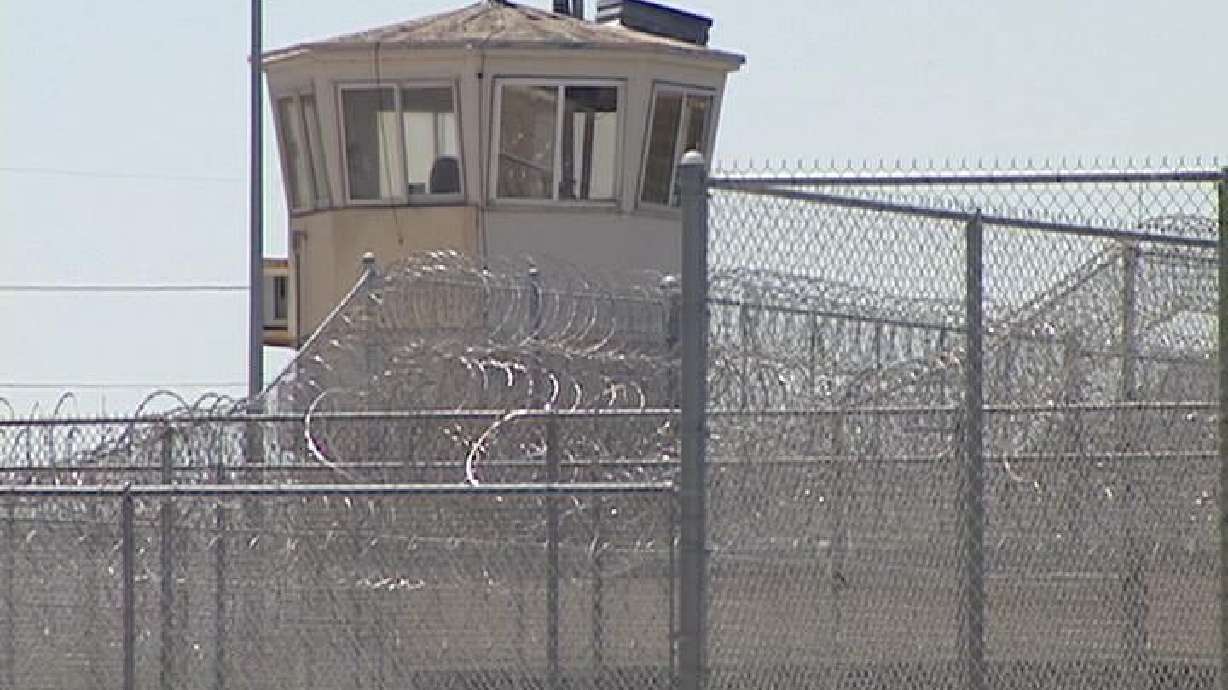Estimated read time: 4-5 minutes
This archived news story is available only for your personal, non-commercial use. Information in the story may be outdated or superseded by additional information. Reading or replaying the story in its archived form does not constitute a republication of the story.
GRANTSVILLE — Grantsville city officials are taking matters into their own hands to prevent the Utah State Prison from landing inside the city’s borders, but that doesn't mean the Utah Legislature will listen.
The Grantsville Planning Commission unanimously passed city code changes Wednesday night to forbid construction of the new prison in the city.
“We feel like we have the right to say what can be built within our community,” said Grantsville Mayor Brent Marshall.
The approved zoning changes add prisons and other correctional facilities to the city’s land-use management and development codes and would mandate that no prison, jail or correctional facility will be allowed in residential, agricultural or commercial zones. It only allows a prison to be built in manufacturing zones with a conditional-use permit, Marshall said.
If a permit is issued for construction of a prison, it would only sanction a 249-bed facility, he said. The new prison the Legislature’s Prison Relocation Commission is planning will house roughly 4,000 inmates.
Marshall said the zoning change is Grantsville’s attempt to “fight back” and insist the city is not chosen as the new state prison’s construction site.
“The leadership of Grantsville city does not want this prison. The residents of Grantsville do not want this prison,” the mayor said, adding that he has spent hours answering phone calls and emails from Grantsville residents concerned about the prison moving into their community.
We feel like we have the right to say what can be built within our community.
–Brent Marshall, Grantsville mayor
“We have to do whatever we can to keep it out,” said Grantsville City Councilman Scott Stice.
Marshall said Grantsville does not have the infrastructure to support a correctional facility the size of the proposed state prison. He said the city would face challenges with water use because a prison at that size would require vast amounts of water, enough to limit the rural city’s valuable water resources that could be used for development.
“The demands of a correctional facility upon Grantsville would be significant, and I’m not saying impossible, but would require significant extensions and upsizing of the system's infrastructures,” Marshall said.
He said the option the Legislature is offering to the community that ends up with the prison to increase its sales tax by 0.5 percent to help with infrastructure costs would not “come close” to covering the needed expenses because of the city’s low population.
Marshall also said Grantsville would face highway access challenges and would place a prison a fair distance away from its experienced workforce and services.
But the change in city ordinances might not be enough to stop the Prison Relocation Commission from recommending Grantsville as the new prison’s location. The commission, which must make a decision by Aug. 1, is studying five potential sites including Grantsville — two others near Eagle Mountain, one near Tooele, and one west of Salt Lake City International Airport.
Sen. Jerry Stevenson, R-Layton, Prison Relocation Committee co-chairman and Senate sponsor of HB454, the bill mandating the full Legislature will ultimately decide where the prison goes, said there are certain city ordinances that the state can “bypass” when building facilities.
Stevenson said Grantsville’s zoning changes might become an “obstacle,” but likely not one that is “insurmountable.”
“The state Legislature has the full authority to determine the scope of authority of local governments,” said Utah state attorney Robert Rees.
The state sometimes encounters some constitutional exceptions, Rees said, but Grantsville’s case most likely won’t be one of those exceptions.
Marshall said “Big Brother” will probably do as it pleases, but the ordinance was put in place to at least give the city a voice in the matter and put some sort of hurdle for the Legislature to consider before making its decision.
“I think it would be something that would be challenged and put through a court system,” Marshall said, if the Legislature selects Grantsville.
He said he believes Tooele County has been “ostracized” by the state and the Prison Relocation Commission because Utah County and Salt Lake County have had representatives sit on the boards considering the prison relocation.
Jared Hamner, executive director of the Tooele County Chamber of Commerce, said while legislators have been saying rural communities could benefit from the large prison facility by bringing workforce and development opportunities, the lack of communication from the Prison Relocation Commission and the absence of solid plans would make it an unwise investment.
Hamner said the county would rather not agree to something so drastic without more concrete solutions to address issues and a firmer outlook on the growth opportunities that it would present.
If the Legislature still decides to “force” the prison upon Tooele County, the chamber of commerce will seek ways to “make it as positive as possible,” he said.
“When life throws you a punch, you have a couple of different choices,” Hamner said. “You can fight against it, or you can roll with it and say, ‘What can I do to utilize this?’ And that’s what we will do if we have to.”








